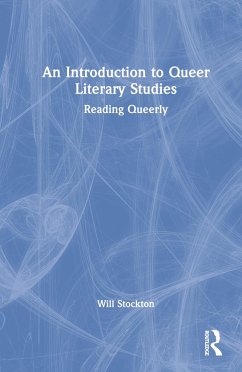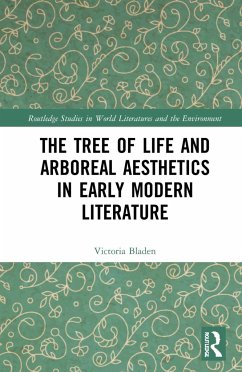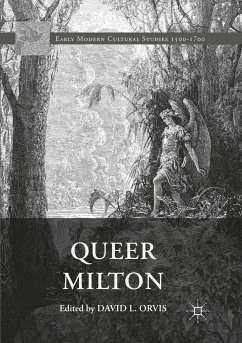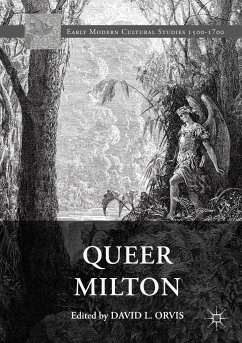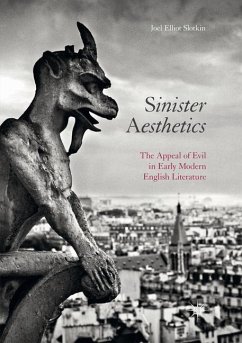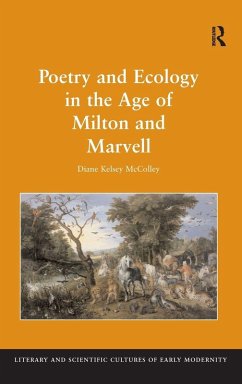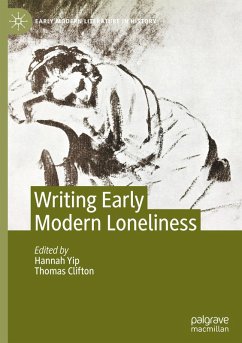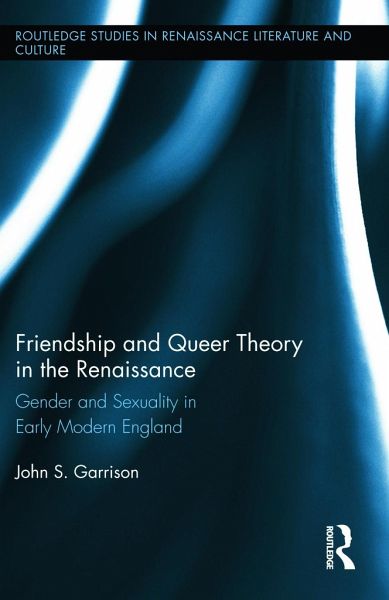
Friendship and Queer Theory in the Renaissance
Gender and Sexuality in Early Modern England
Versandkostenfrei!
Versandfertig in 1-2 Wochen
185,99 €
inkl. MwSt.
Weitere Ausgaben:

PAYBACK Punkte
93 °P sammeln!
Studies of Renaissance literature frequently frame marriage as signalling the resolution of narrative conflicts and the necessary end of comedies. This book proposes that we think beyond the all-pervasive figure of the couple, too often framed as the core unit of social relations. The author challenges these assumptions and suggests new frameworks within which to analyze literary depictions of idealized social relations. This volume will be of interest to scholars of the early modern period in England, and those interested in the intersections between literature and gender studies, economic hi...
Studies of Renaissance literature frequently frame marriage as signalling the resolution of narrative conflicts and the necessary end of comedies. This book proposes that we think beyond the all-pervasive figure of the couple, too often framed as the core unit of social relations. The author challenges these assumptions and suggests new frameworks within which to analyze literary depictions of idealized social relations. This volume will be of interest to scholars of the early modern period in England, and those interested in the intersections between literature and gender studies, economic history and the economic aspects of social relations, and the history of sexuality.





